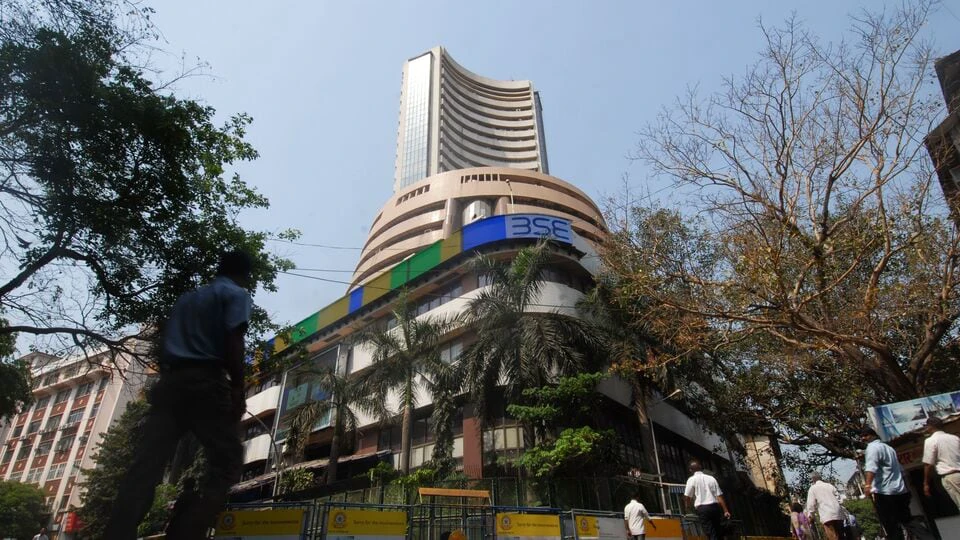Asia’s oldest stock exchange has defied expectations that a shift in weekly index options expiry days would hit its volumes, instead chipping away at its rival National Stock Exchange’s dominant market share, per early trends.
The weekly expiry day of NSE’s index options contracts was shifted to Tuesday from Thursday effective 2 September, and of BSE’s to Thursday from Tuesday from 4 September.
Market experts had expected that this would enable NSE to recoup market share from BSE thanks to an extra day-Friday, alongside Monday and Tuesday-as opposed to Wednesday and Thursday for Sensex options.
But early turnover trends data show otherwise.
NSE’s data show that its share of equity options-on index and stocks-fell to 75.6% in the rolling three-month period ended 30 September, with BSE accounting for the rest. At the end of August, NSE’s three-month rolling share was 76.4%, per its monthly publication, Market Pulse. The data is based on equity options’ premium turnover.
NSE calculates market share on a rolling basis for three months, which coincides with its quarterly earnings, where the exchange highlights aspects such as market share of different products like equity cash and futures and options.
On a standalone basis, NSE’s market share climbed to 75.56% in September from 73.35% in August, while BSE’s share dropped to 24.4% from 26.65% . However, BSE has again recouped market share in the current month through 21 October, with its equity options market share rising to 26.7% against NSE’s 73.3% over 14 trading sessions.
BSE has steadily increased its market share from near zero in May 2023, when it relaunched its Sensex options. At 2.40 pm on Thursday, BSE’s share price was up 0.66% at ₹2,504.10 apiece. The benchmark Sensex index was up 0.40%, or 340.52 points, at 84,766.86.
Traders like volatility
Months after reducing weekly index options expiries to two from five in October last year, the Securities and Exchange Board of India late May said stock exchanges could opt for an expiry of their benchmark indices either on Tuesday or Thursday.
NSE, which had a Thursday expiry for its Nifty and Bank Niftyderivatives for about 25 years, shifted its expiry to Tuesday effective 2 September. BSE was left with no choice but to choose Thursday for its Sensex expiry from 4 September.
“Sensex is a smaller index (30 stocks) and tends to be a tad more volatile than the Nifty (50 stocks) on certain days, which is why BSE has been able to hold on and perhaps even increase its turnover share more lately despite the change in expiry,” said Rajesh Baheti, managing director, Crosseas Capital.
The 12-member Bank Nifty weekly options-in which trading was discontinued in November last year-was more volatile and thus more popular among traders than the Nifty or Sensex, he added.
Baheti warned that if Sebi decides to end weekly options expiry, BSE could be more affected as NSE’s monthly contracts are more liquid and its unique Gift Nifty contracts are a hit among global investors.
Alarmed by losses suffered by individual investors- ₹1 trillion for about 9.6 million investors in 2024-25-Sebi has clamped down on equity options trading, reducing weekly expiries and imposing additional margins on the expiry days of Sensex and Nifty options, among a slew of measures since October last year.
Narinder Wadhwa, founder of SKI Capital Services, expects regulatory measures on weekly index options to be calibrated and gradual, not hasty.
“Unless Sebi introduces fortnightly or monthly options expiring on the same day, BSE would benefit, along with NSE, over the longer term as market participants look for variations in products, like expiry on different days rather than on same day, as reasons to add more liquidity to markets,” he said.
The popularity of equity options in the exchange business is reflected by its share in transaction income, the main revenue stream for stock exchanges. Equity options accounted for 76%, or ₹2,372 crore, of NSE’s transaction fees of ₹3,123 crore in the June quarter, with equity cash contributing 13% and equity futures the rest.
